The paradox of migration
Hassnae Bouazza
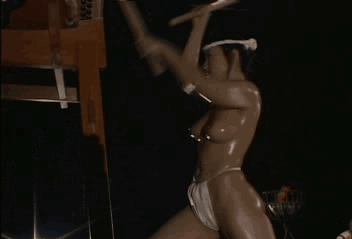
Bonjour. D’abord merci pour cet occasion. Je suis née à Oujda et grandi aux Pays Bas. Le Maroc c’est le pays des Marocains qui adorent s’exprimer en Francais. Donc je voudrais juste vous saluer en Francais, mais je vais continuer en Anglais.
Like I just said, I was born in Oujda and I just wanted to say a few words in French, because in the old days when we used to visit Morocco during those long Summer holidays, one of the things that struck me most when I was young was this urge among Moroccans to speak French. And I would be like ‘I speak Arabic, talk Arabic to me’. That’s one of the very first differences I noticed between me and other Moroccans. But I guess that’s what migrating does: it creates a distance that allows you to look at people from a different perspective and angle, but at the same time the connection remains strong. You’re one of them, even though somewhat different.
Coming here as a child and adolescent I always felt at home. I remember sitting in front of my parents’ house and I would hear youngsters talking further down the street, they spoke Darija, the same language I was raised with, and it felt safe and familiar.
Sense of humour
I always felt a strong bond with Morocco and Moroccans. It’s not just the soil, the sunrays, the flavours of this land, but also the strong sense of humour I share with Moroccans, that witty self-mockery, the love for dance, the derbouka and shaabi music -whatever you think of Moroccans, you sure know how to party. It’s all part of my identity and it makes me connect with people here on a very simple and emotional level without even uttering one word.
But I have to admit, over the course of years, you and I, we’ve grown apart. I think most Moroccans here will see me as a westernized, probably diluted Moroccan. And Dutch people they never ever saw me as anything else but Moroccan, as the other.
Now, one of these days Leila Slimani’s book Sex and Lies will be published in Dutch. The publisher asked me to write a a preface, a foreword to the book. And as I was reading it, I realized that the outside world, the Western world, is always so interested, fascinated, sometimes even obsessed with the intimate life of the Arab, Moroccan, Berber, Muslim woman.
And the more the woman is covered up, the stronger the curiosity. It makes sense in a way, but if you combine it with the suspicion with which most people from the Arab world are regarded – and when I say Arab world I mean the Arab world in all its diversity with all the indiginous and culturally diverse people and groups – the interest becomes a little bit suspect and at times even obscene.
Alien culture
But before I delve into that, I think we first have to explore the paradox of migration. Or rather the contradictory results of migration. It brings wealth but also poverty. It enlarges your world, but it also brings loneliness, it offers perspective, but also the burden of feeling undefined.
The wealth migration brings is evident. You grow up in a different environment, you learn to navigate between cultures, you become flexible in mind and body, you learn to view matters from different perspectives which is very valuable in understanding other people. You soak up so much knowledge and experiences, both good and bad, that shape you. And then there’s of course the ideal of having two homes. Of feeling at ease both here and there. Ideally, that is.
In reality, there is always this lingering sense of displacement. Of being home neither here nor there, of being the stranger, the other. Being the other is exhausting. It means you’re never accepted, always judged and questioned, very often mistrusted, and in any case not seen as fully equal. It means you constantly have to explain yourself, prove yourself. And maybe most importantly protect yourself.
Imagine, I was four when I moved with my parents to Holland. Four, that’s a lifetime ago. Forty years later Dutch people, politicians and media still see me as a Moroccan. As somebody with an alien culture, and as a Muslim I’m also regarded as a threat, as a surplus they rather lose. As an abstract identity they analyze in their papers, they talk about in their programs and in parliament.
Not as an individual with personal beliefs and dreams, but as part of an amorphous and unwanted group.
Emotional transit
Being a migrant starts with being dependent on your parents and older brothers and sisters. It means confusion, getting to terms with the outside world with its different language and codes and the language and norms at home.
Growing up a as migrant inevitably means that one day your parents become dependent on you. If you want to see the vulnerability of migration, look at the older generation, lost in an emotional transit: between the place where their children are and the birth ground their heart yearns for.
Growing older as a migrant you learn the true meaning of loss. It means burying your parents far away and not being able to visit their graves regularly. And burying your parents, as a full grown woman shaped by both the Moroccan and the Dutch culture, for me meant being confronted with traditions that I found hard to deal with.
When my father passed away, we travelled to Morocco with his coffin and when we arrived I wanted to join him to his grave, but I wasn’t allowed to. Because I’m a woman. And apparently tradition says that women are not to attend funerals.
Here the first really big crack began to appear in my relationship with my country of birth. My Moroccan part surrendered, torn by grief, my Dutch part wanted to rebel and revolt against this grave injustice. My Moroccan part realised that I wouldn’t be able to change anything if I was the only one who objected to this practice. My Dutch part chose to write about it.
Religious books
That’s one way of looking at it. Maybe it were my Moroccan genes that made me rebel, it’s very well possible. Because when I think of the women that influenced and inspired me, I come up with people like Fatima Mernissi, Lebanese writer Hanan Shaykh, Arab actresses I grew up with and who rebelled and explored their sexuality, feminists like Saudi Souad Shammary who slap fundamentalists around with their wit and theological knowledge. I think of Latifa Jbabdi and her colleagues who defied political and religious authorities to demand equality. And of course, I think of my own mother, my sister who consulted the religious books and said she couldn’t find any excuse to deny women the right to attend a funeral. Or my surrogate grandmother who delivered me as a baby and who was a feminist before I had ever heard of the word.
That’s one part of me, navigating through life and trying to reconcile the spiritual and the physical I look at other women who went through the same struggles. Women who I think would understand me and the ambivalence of my feelings.
But it’s just one part of my identity, not all. By far not all. But it’s all the Dutch environment sees. I’ll give you an example. For years I have been writing about the Arab world, I made a documentary series about muslim feminists, and that was fine. But whenever I wanted to work on subjects not related to my own background I encountered quite some obstacles. And there we have another problem: you get reduced to just one part of your identity, and unhappily so, it’s the part people loathe most: the Moroccan, islamic part.
Deepest desires
But nobody’s one-dimensional, okay, some people are, if you look at Twitter. We’re not just our nationality, our culture, our religion, we’re also our beliefs, our hopes, our interests, our loves and fears. And our secrets. We balance between our deepest desires and a longing for autonomy. I’ll give you an example.
I have a website called Aicha Qandisha. And I write about anything I like: make up, fashion, food, travel, politics. Because it’s part of who I am. I’m not just the columnist who likes to rattle cages, who loves polemics, I also like to explore other aspects of life and subjects and then what happens is that men, especially white men, disqualify and belittle you because, as one nitwit put it, you write about pies and cakes.
Yes, I write about pies and cakes and I’m proud of it. You will never see a football fan being humiliated or belitled because of his love for football. Or how about those hooligans who go and demolish whole towns because their team lost. It’s baffling to me, I mean who cares. But in a man’s world, or ‘white man’ I should say, man’s rules apply. And men’s rules are in serious need of refurbishment.
Let me go back to back where I started with Leila Slimani’s book and the unhealthy preoccupation of the West with the Arab/Muslim woman. And of course one’s position as a migrant, because that label sticks to you like… fat sticks to my body, I can’t get rid of it.
Moroccan problem
And you’re not just a migrant, you’re a problem. For the past seventeen years we’ve been having a so called debate on Islam in Holland. Which isn’t really a debate, but rather an endless series of insults and indictments against the migrant communities. We’ve even had a debate about the ‘Moroccan problem’ in parliament. Imagine, being discussed as one problematic entity, like a cancer that needs to be cut out. I know, it sounds harsh and dramatic, and you know what: it is.
There’s this constant preoccupation with Muslims and Moroccans, every now and then the Turks took over and they focuss on them -and we’re very grateful for that as Dutch-Moroccans, it gives us some relief, but they always find us again. Because somewhere out there a Moroccan, or Dutch person of Moroccan descent will have done something and we’re all complicit. All 300.000 of us. Just like when some Muslim somewhere in the world does something and somehow we’re all to blame for that.
But the thing is, once you open the door to racism and to a racist analysis of events (have you ever seen a white man having to explain himself after a killing spree by a fellow white man?) you open the door to a nightmarish path of exclusion. And that’s what we’re fighting now in Holland, the blatant exclusion. And not just the migrant communities. Nowadays, black people in Holland who are Dutch natives and who speak out against racism, are also called names and told to go back to the plantations, referrring to the years of slavery.
And don’t forget, these same young Dutch Moroccans who are looked down upon in their country of birth, which is Holland, are also spat at here in Morocco. Now, tell me, where is their home? I will never forget one time I was in the bus in Oujda and there was a Moroccan from Europe in his car, he was a bit loud and the woman standing next to me, cursed him, because she despised the fact that he lived in Europe. She didn’t see a man, she didn’t see a young spirit trying to enjoy life. There was only sheer contempt. She cursed him.
And that is also migration, being despised on both sides.
Dutch racism
Let me stress, just to be very clear, in condemning Dutch racism, I also vehemently condemn the Moroccan racism. I have heard about the shameful way some people here talk about the African migrants and the Syrian refugees. I find that really shocking.
But it also underlines the fact that regardless of the details of your life, you know religion, or the lack of it, the land you were born in, the language you were raised with, the culture you were brought up with, that in essence people are very much alike, depressingly so. And I want to end with a very funny, I mean it’s not really ha ha funny, but okay funny story.
Now, I have spoken about the poisonous and shameless racism in Holland. And not just in Holland, fascist populists have entered parliament and dominate the media in many European countries and we even have an orange fascist pussy grabbing monkey in the White House.
But here it comes. These fascists are very often also anti-feminist. They feel that feminism is a threat to their “masculinity”. Mind you, in these past seventeen years of debate in Holland we have had to endure ad nauseum the claim that Western civilisation is very feminist and that women and men have been equal for centuries. Which is pure crap, of course. But anyway, now we have this generation of extreme-rightists who call themselves alt-right, as if that makes them less revolting or their ideology less nazistic. And these men are now in full force complaining in articles and columns that they, poor white men, are emasculated. That women want to take over, that feminism has gone too far.
Obedient woman
And you know what that reminds me of? The eighties, aah, the eighties, I was still so young and promising, and it was the time when the Muslim brothers reached Europe and Moroccan men from my father’s generation began to grow beards and wear trousers that were too short, as if that will open paradise, and those men felt emasculated as well, and I would hear them talk about how women had to be controlled and that they shouldn’t have too many rights. And then years later when Benazir Bhuto became president in Pakistan, they felt so threatened they were sure it was the end of time. Because a woman, a Muslim woman, had become president.
I think that’s hilarious. All those men who oppose Islam because of its so-called mistreatment of women, well, they’re not so women-friendly either. And no white skin colour or western background can sugar-coat that. All these men who were so desperate to ‘save’ Muslim women from their religion and environment, were actually just very jealous, they just want themselves a servile, obedient woman too.
And thát is migration too. You learn to see through all the lies and hypocrisy, you learn to make fun of it, you grow some thick skin and a pair and you just move on. Battling your way through life.
Important lesson
And just to get a little preachy, I like preachy, I think we need more preachers who speak with empathy and who passionately fight exclusion and injustice, otherwise we’re going to lose this battle from the racist populists.
One other important lesson that you learn as a migrant and as a stranger, as the other, is that you should never mistrust the stranger, because he or she might just be a source of beauty and deep love.
Lecture held on April 27 at the Moroccan-Dutch Colloquium on Migration & Culture, organised by the Mohammed V University in Rabat, the Leiden University and the Netherlands Institute Morocco (Nimar).
Hassnae Bouazza is a Dutch-Moroccan writer, journalist, Middle-East watcher and translator. She received the Arouwad Award in Beirut in 2015 for her work on the Arab world. Dutch islamophobes consider her a front soldier of the islamisation of The Netherlands. Together with former MP Femke Halsema she made a documentary series about women in the islamic world, Sex and Sin.
English, Hassnae Bouazza, 28.04.2018 @ 16:06
1 Reactie
op 28 04 2018 at 16:43 schreef Peter:
Feel the need to comment? Leesfrontaalnaakt@gmail.com.


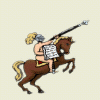
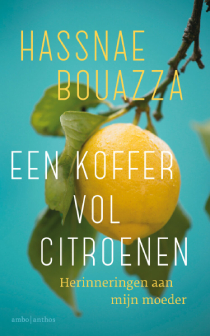
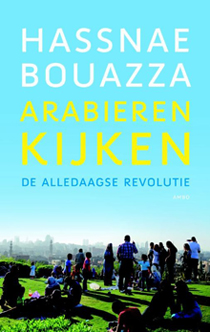
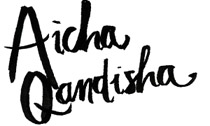
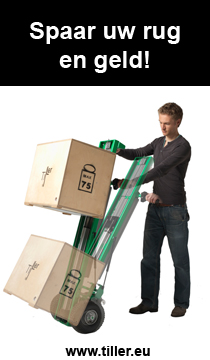
 RSS
RSS